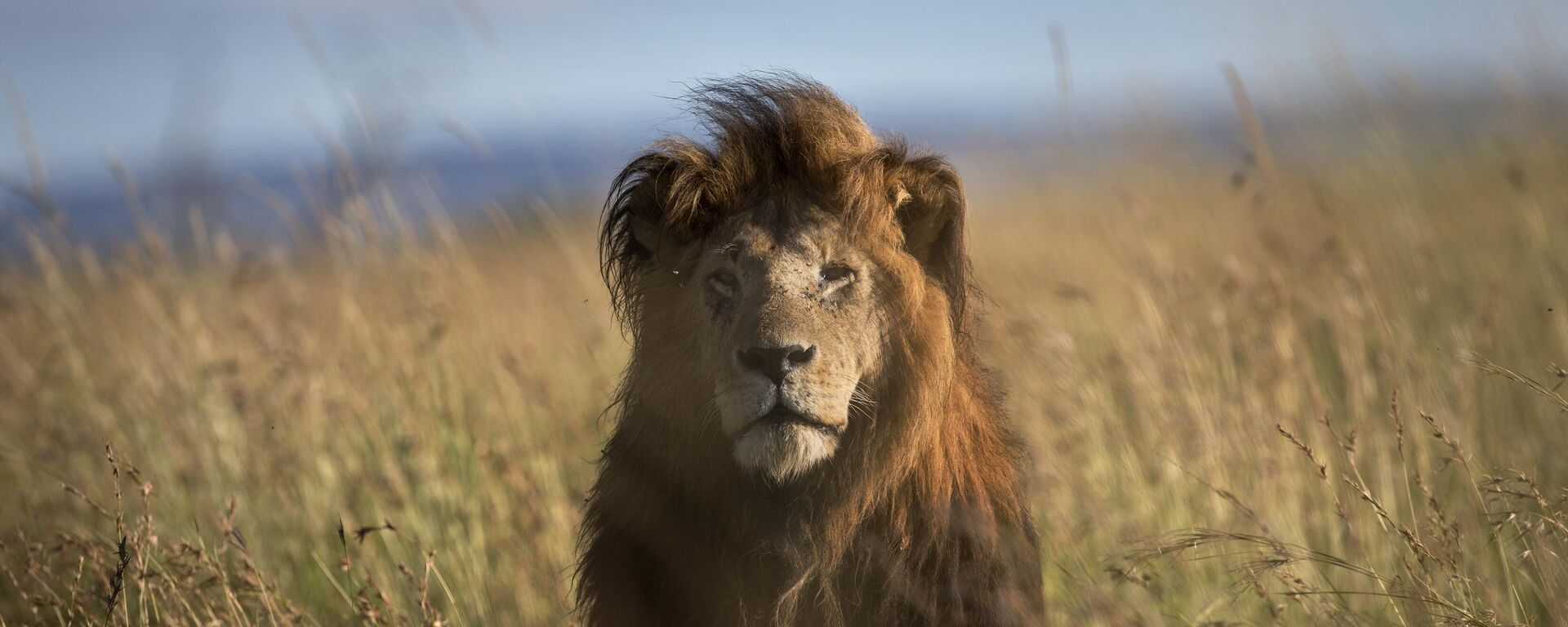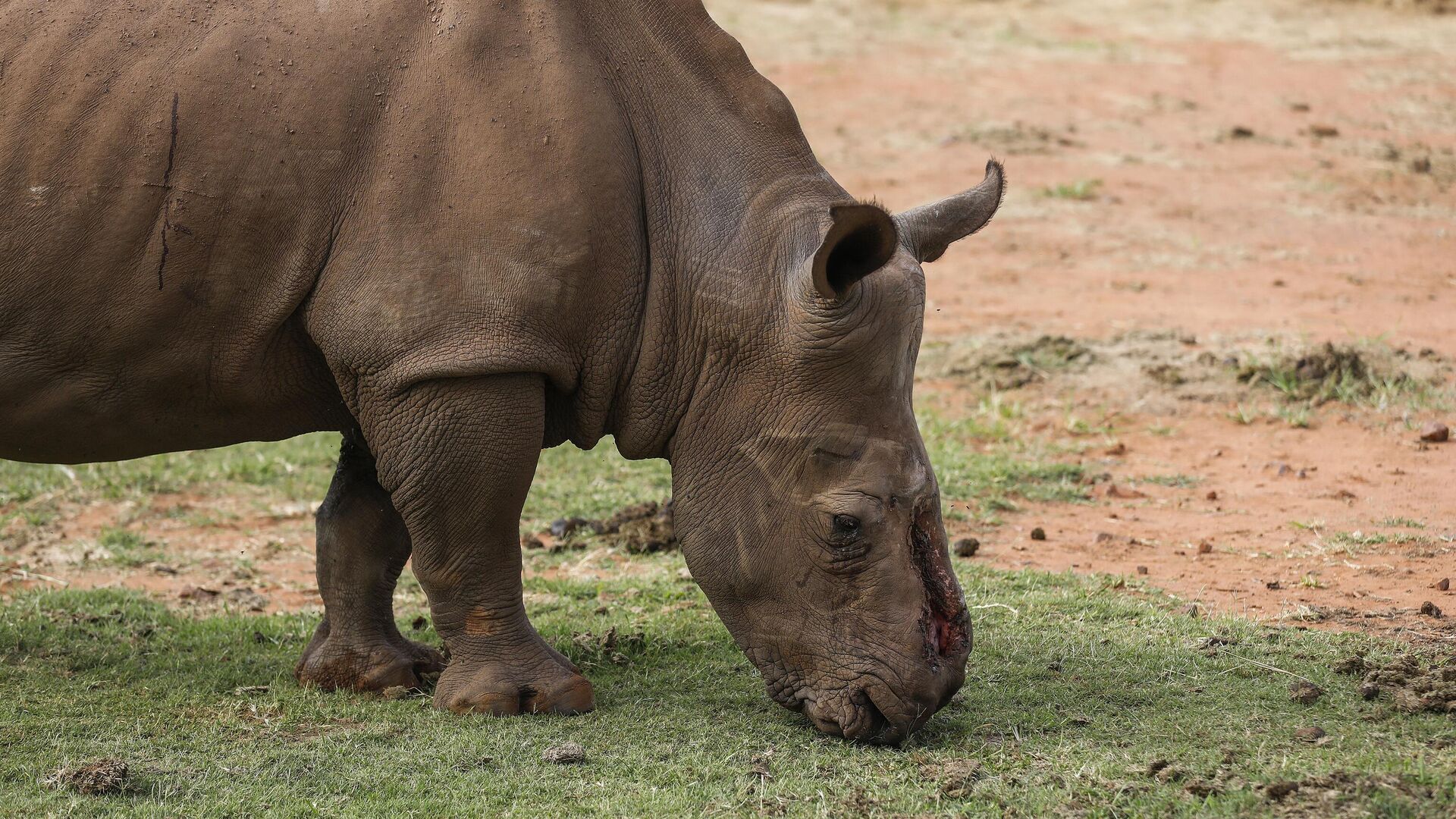https://sputnikglobe.com/20221223/south-africa-to-use-lie-detectors-on-game-reserve-staff-to-combat-poaching-media-report-1105721523.html
South Africa to Use Lie Detectors on Game Reserve Staff to Combat Poaching, Media Report
South Africa to Use Lie Detectors on Game Reserve Staff to Combat Poaching, Media Report
Sputnik International
South Africa plans to include polygraph tests of game reserves staff in its efforts to combat poaching, according to national parks management agency cited by the media.
2022-12-23T12:10+0000
2022-12-23T12:10+0000
2022-12-23T12:10+0000
africa
southern africa
south africa
poaching
wildlife
rhinoceros
lie detector
https://cdn1.img.sputnikglobe.com/img/07e6/0c/17/1105721582_0:320:3072:2048_1920x0_80_0_0_6f336ae9c4683008cea4949065269936.jpg
South Africa plans to include polygraph tests of game reserves staff in its efforts to combat poaching, according to the national park management agency, cited by the media.SANParks, the South African National Parks authority, reportedly believes that some employees of the reserves may be corrupt and working in collusion with poachers. Therefore, the agency adopted a policy involving lie detector tests. The body stated that these will be voluntary at first, but the "intention is ultimately to make polygraph testing compulsory for certain job categories".The use of polygraphs was introduced as part of a SANParks pilot project in 2016. Barbara Creecy, South Africa's Environment affairs minister, said that the new testing policy had been approved in November this year and was expected to be implemented early in 2023.South African rhinoceros populations include the endangered black rhino species. Between April 2021 and March 2022, around 470 South African rhinos were poached, which is 16% more than the previous twelve-month period, according to official data.The number of rhinos living in the tourist-favored Kruger National Park decreased by around 70% between 2008 and 2021, from some 10,000 to 2,800, as SANParks statistics show.The use of rhino horns in traditional medicine in Asia has been named among driving factors behind the poaching of the animals.
https://sputnikglobe.com/20221207/un-cop15-on-biodiversity-starts-amid-backdrop-of-african-wildlife-losses-1105160713.html
africa
southern africa
south africa
Sputnik International
feedback@sputniknews.com
+74956456601
MIA „Rossiya Segodnya“
2022
News
en_EN
Sputnik International
feedback@sputniknews.com
+74956456601
MIA „Rossiya Segodnya“
Sputnik International
feedback@sputniknews.com
+74956456601
MIA „Rossiya Segodnya“
south africa rhinos, rhino poaching, sanparks lie detectors, kruger park, black rino
south africa rhinos, rhino poaching, sanparks lie detectors, kruger park, black rino
South Africa to Use Lie Detectors on Game Reserve Staff to Combat Poaching, Media Report
About 80% of the world's rhinoceros population lives in South Africa, attracting poachers, who have become a serious problem for the country in recent years.
South Africa plans to include polygraph tests of game reserves staff in its efforts to combat
poaching, according to the national park management agency, cited by the media.
SANParks, the South African National Parks authority, reportedly believes that some employees of the reserves may be corrupt and working in collusion with poachers. Therefore, the agency adopted a policy involving lie detector tests. The body stated that these will be voluntary at first, but the "intention is ultimately to make polygraph testing compulsory for certain job categories".
According to SANParks communications chief Rey Thakhuli, "polygraph testing is not the answer to prevent or manage staff involvement in criminality but it is a tool that needs to be used as part of the toolkit and with a full understanding of its benefits, but also its limitations."
The use of polygraphs was introduced as part of a SANParks pilot project in 2016. Barbara Creecy, South Africa's Environment affairs minister, said that the new testing policy had been approved in November this year and was expected to be implemented early in 2023.

7 December 2022, 15:05 GMT
South African rhinoceros populations include the endangered black rhino species. Between April 2021 and March 2022, around 470 South African
rhinos were poached, which is 16% more than the previous twelve-month period, according to official data.
The number of rhinos living in the tourist-favored Kruger National Park decreased by around 70% between 2008 and 2021, from some 10,000 to 2,800, as SANParks
statistics show.
The use of rhino horns in traditional medicine in Asia has been named among driving factors behind the poaching of the animals.



